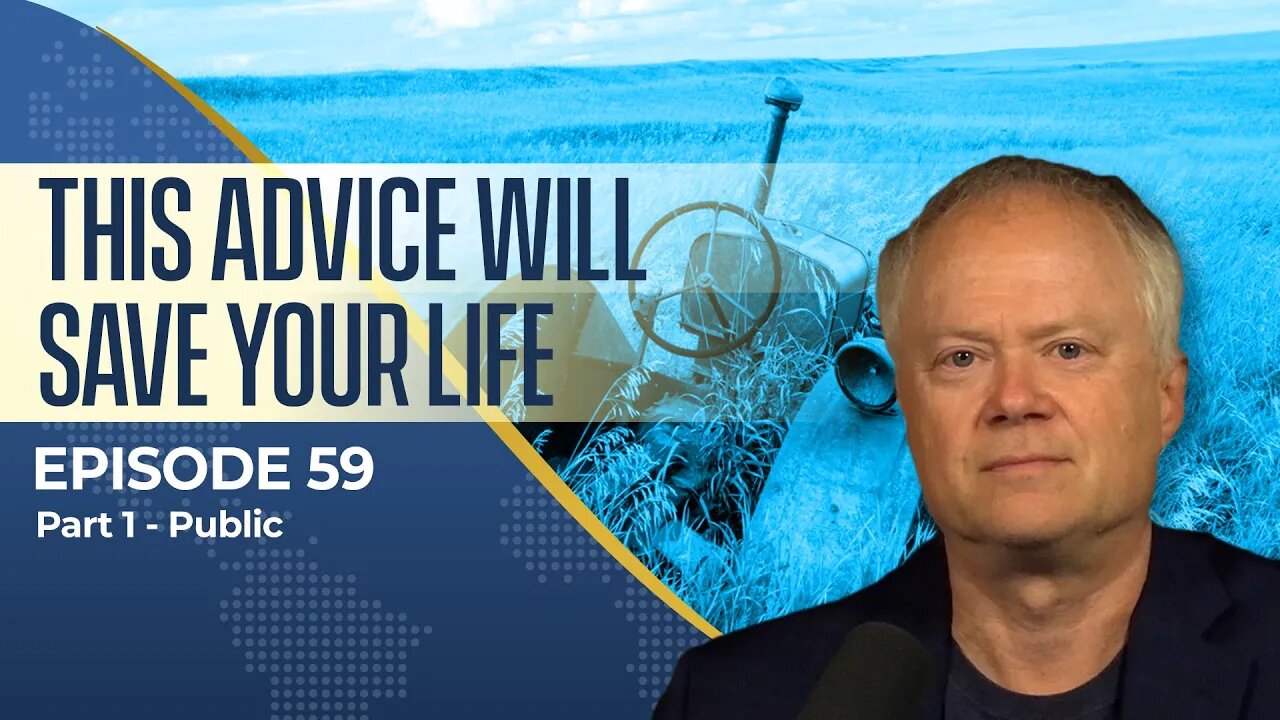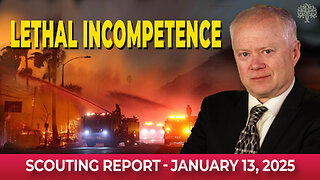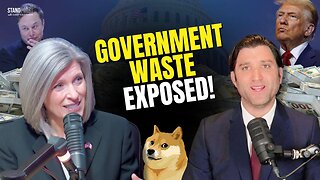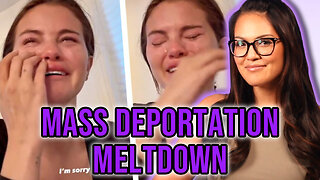Premium Only Content

Will You Starve to Death This Year?
Part 2 found here:
The economy does not produce energy. It uses energy. It depends on energy. No energy = no economy. It’s a very simple equation really, and one that is easily intuited.
But somehow, we have unserious people making unserious decisions that will have entirely serious consequences and I’d like you to avoid them as much as possible.
Currently, diesel prices in the U.S. and Europe are signaling that serious shortages are now upon the western world. What does this mean?
Well, it simply means that less diesel will be used than before. High prices and actual shortages tend to have that effect. Which products or services will be diminished as a result? That I cannot say. Nobody can because our economy is actually a complex system which means it is inherently unpredictable.
Millions of independent decisions made by producers, consumer and transportation companies will combine into some sort of new behaviors. All we can do is know they are coming and watch them as they emerge.
For example, who could have predicted the sequence of events that caused natural gas to skyrocket in price leading key fertilizer companies all over the world to limit their production, if not shut it down entirely? How was it possible that various governments merely shrugged at this outcome and let it happen without using some of their free-spending habits to shore up this critical, vital component of farm productivity?
It would all be comically bad theater if it weren’t so deadly serious.
This fertilizer shortage – again, expressed as skyrocketing prices because supply, demand and price all balance out – has now translated into critical spring farming applications not being carried out, which in turn will result in massive food shortages and starvation later this year.
How bad will it be? We don’t know yet, but the early estimates place the yield declines at anywhere from 10% (for rice) to as much as 40% for Peru’s output.
To put this in context, note that each year supply and demand are very tightly balanced, and usually match each other with only a very low single-digit percentage variance.
A 10% decline in yields would be devastating. A 40% decline would be apocalyptic. Anything in between and you can pick your own adjective.
Just as bad, and another piece of the puzzle few consider, is that while the weight of the harvest may only be down 10%, the decline in food quality may be as troublesome. Failing to fertilize spring wheat will result in a decline in its protein content leading to a much poorer food stuff.
Add it all up and what do we have? You need to plant a garden. Please. I’ve been saying this for a couple of years now, and I think the fact that global publications are all now mentioning food shortages should be sufficiently motivating to all.
Please. Plant a garden. Even a few planter boxes on a balcony. You can "go in" with someone nearby or join a local Community-Supported Agriculture (CSA) group or strike a deal with a local farmer. You won’t regret it.
It’s quite urgent that you do one or several of these things as soon as you can.
In Part II –for members only – I will talk about how the real estate market is poised for the biggest crash of our lifetimes. Far worse than 2008. The central banker’s bubbles are all crashing down and the signs all point to real estate having started its implosion. There are ways for you to protect yourself, but the timing might prove tricky, so we’ll engage the Peak Prosperity hive mind to prospect for the best angles and strategi
-
 26:31
26:31
Peak Prosperity
14 days agoWhat The CA Fires Really Mean - Peak Prosperity
8.08K14 -
 LIVE
LIVE
Akademiks
1 hour agoASAP Rocky Case has Begun . He's facing 24 years for SH**ting his friend!
2,911 watching -
 LIVE
LIVE
Revenge of the Cis
2 hours agoEpisode 1436: Adios Amigo
1,629 watching -
 1:14:45
1:14:45
Awaken With JP
4 hours agoTrump's Making Everyone His B*tch LOL - LIES Ep 76
50.4K17 -
 1:41:43
1:41:43
Megyn Kelly
23 hours agoMedia's ICE Hoax, Vance's Masterclass on CBS, & Trump vs Bass, w/ Steve Bannon & Batya Ungar-Sargon
43.4K55 -
 1:04:28
1:04:28
In The Litter Box w/ Jewels & Catturd
22 hours agoGreen New Scam | In the Litter Box w/ Jewels & Catturd – Ep. 729 – 1/28/2025
55.3K28 -
 2:03:41
2:03:41
The Quartering
4 hours agoTrump To END Income Tax, Captain America Backlash, Obese Rapper Sues Lyft & Surge Pricing In Walmart
70.9K31 -
 1:05
1:05
tether
11 hours agoHadron by Tether - tokenize anything, anywhere
19.3K3 -
 34:32
34:32
Standpoint with Gabe Groisman
20 hours agoGovt. Workers AREN’T Working Says DOGE Chair Sen. Joni Ernst
15.3K8 -
 56:49
56:49
Savanah Hernandez
4 hours agoMASS DEPORTATIONS ARE HERE AND THEY ARE GLORIOUS
30.8K13